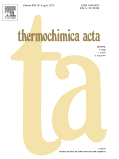 A scientist in Brazil has gained his twelfth retraction for reusing text and figures from previously published papers.
A scientist in Brazil has gained his twelfth retraction for reusing text and figures from previously published papers.
In 2011, Elsevier announced that it would retract 11 papers by Claudio Airoldi, a researcher at the State University of Campinas (UNICAMP) in Brazil. Subsequently, he was suspended for 45 days, and his co-author on the 11 previously pulled papers, Denis de Jesus Lima Guerra, lost his post at the Federal University of Mato Grosso (also in Brazil).
Now, a 12th retraction has appeared for Airoldi — this time in Thermochimica Acta.
Here’s the latest retraction notice, issued earlier this year:
This article has been retracted at the request of the Editors as recycling text and Figures 2 and 3b from previously published articles by the same authors has occurred. Also Figure 3a and 3b were assigned to different compounds although the SEM image in Figure 3a is just an enlarged view of Figure 3b.
The other publications affected are:
– Analytica Chimica Acta 523 (2004) 89–95: http://dx.doi.org/10.1016/j.aca.2004.05.063
– Journal of Chemical Thermodynamics 38 (2006) 130–135: http://dx.doi.org/10.1016/j.jct.2005.04.008
– Solid State Sciences 10 (2008) 1139–1144: http://dx.doi.org/10.1016/j.solidstatesciences.2007.11.023
– Materials Research Bulletin 47 (2012) 1539–1543: http://dx.doi.org/10.1016/j.materresbull.2012.02.024
– Open Journal of Synthesis Theory and Applications 2 (2013) 1–7: http://dx.doi.org/10.4236/ojsta.2013.21001
– Quimica Nova 36 (2013) 1170–1175: http://dx.doi.org/10.1590/S0100-40422013000800016
The 2014 paper, “Thermodynamics of the nickel, cobalt and zinc removal from ethanolic solution by p-aminobenzoic acid intercalated on layered calcium phosphate,” has been cited once (by its retraction notice), according to Thomson Reuters Web of Science.
Out of the 11 papers flagged by Elsevier in 2011, one is still to be retracted: “Application of modified attapulgites as adsorbents for uranyl uptake from aqueous solution—Thermodynamic approach” — this 2010 paper has been cited 13 times in total (12 times since 2011).
We’ve contacted the editors-in-chief of the journal, Process Safety and Environmental Protection, and the journal’s publisher, Elsevier, for an update on the status of this paper.
The newly retracted paper is one out of five mentioned in the retraction notice issued for a another paper in 2014 by the same group (which doesn’t include Airoldi as a co-author).
Two out of the other four flagged papers in the 2014 retraction notice have received corrigenda citing printing errors.
Here’s the link to the corrigendum for “Synthesis, characterization and cation adsorption of p-aminobenzoic acid intercalated on calcium phosphate,” which has so far been cited three times since publication in 2012. This one is not authored by Airoldi, and is also the fourth one listed in the latest retraction notice.
And here’s the link to the corrigendum for “Intercalation of methylene blue into barium phosphate—synthesis and electrochemical investigation,” which has gained 26 citations since 2004. This one lists Airoldi as last and corresponding author, and is the second paper listed in the latest retraction notice.
For the remaining two papers mentioned in the 2014 retraction notice, we reached out to the journals — Sensors and Actuators B: Chemical and Journal of Membrane Science — for an update on their status.
We’ve also found two more corrigenda for Airoldi that cite printing errors.
Here’s the link to the corrigendum for “Calorimetric data on intercalation of some aromatic amines into barium phenylphosphonate at the solid/liquid interface,” which has been cited eight times since it was published in 2005. This one is the first one in the latest retraction notice.
Finally, here’s another link to the corrigendum for a 2008 paper, “Methylene blue intercalated into calcium phosphate – electrochemical properties and ascorbic acid oxidation study,” which has garnered four citations so far. This one is the third in the latest retraction notice.
Sonia Vieira of the São Camilo University in São Paulo, Brazil, wrote in her 2015 opinion article, “Not to be Mentioned but Impossible to Keep Quiet About,” in the Journal of Scientific Research and Reports:
In 2009, Airoldi’s name appears in thirty four articles, almost three per month, which is “pathologically prolific publishing”.
She adds:
The University of Campinas punished Airoldi with forty-five days of suspension, but he still holds a researcher financial support from Brazilian National Council of Scientific and Technological Development. The three year delay in the administrative process was partly due to the dilatory measures taken by Guerra’s lawyers.
Regarding Brazilian science as a whole, Vieira writes:
…there is no crisis of ethics in Brazilian science, but since cases of misconduct have been reported, the Brazilian National Council of Scientific and Technological Development formed on March 27th 2012 a Commission for Integrity in Scientific Activity. It is therefore expected that procedures for prevention and punishment of fraudulent activity in science are discussed in Brazil more openly.
We’ve reached out to UNICAMP, but couldn’t find current contact details for Airoldi. We’ll update the post with anything else we learn.
Update 11/10/16 2:39 p.m. eastern: We realized that we forgot to include a previous retraction of Airoldi’s in our count above, which we mentioned in this post from 2015. His total is actually 13, not 12.
Like Retraction Watch? Consider making a tax-deductible contribution to support our growth. You can also follow us on Twitter, like us on Facebook, add us to your RSS reader, sign up on our homepage for an email every time there’s a new post, or subscribe to our new daily digest. Click here to review our Comments Policy. For a sneak peek at what we’re working on, click here.
Mato Grosso, surely
Thanks for pointing out this typo. We’ve corrected the article.